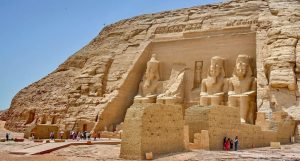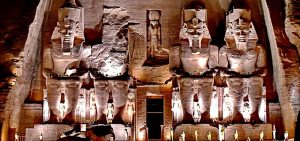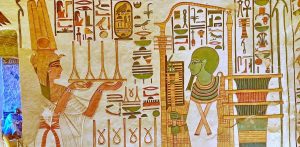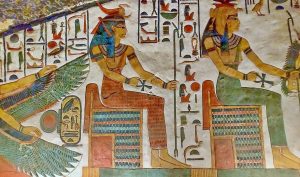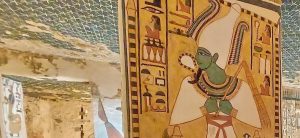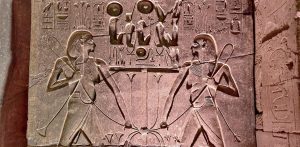God Osiris: The Enigmatic God of the Underworld and Resurrection
In the pantheon of ancient Egyptian gods, one deity stands out for its significance and enduring legacy – God Osiris. Revered as the god of the afterlife, resurrection, and fertility, Osiris played a pivotal role in Egyptian mythology and religious beliefs. This article delves into the captivating story and symbolism surrounding Osiris, shedding light on his role as a divine ruler, judge, and bringer of eternal life.
The Myth of God Osiris:
According to Egyptian mythology, Osiris, son of Geb (the earth god) and Nut (the sky goddess), was one of the first gods to rule over Egypt. He brought civilization, agriculture, and order to the land, earning the love and respect of his people. However, his brother Seth, driven by envy and ambition, plotted against him, leading to a tragic and transformative tale.
The Betrayal and Resurrection:
Seth, consumed by jealousy, murdered Osiris and dismembered his body, scattering the pieces throughout Egypt. Devastated by the loss of her husband, Isis, the loyal wife and sister of Osiris, embarked on a quest to gather the scattered parts. With her unwavering determination, Isis reassembled Osiris, and through her magical powers, brought him back to life, albeit in the realm of the dead.
The Divine Ruler of the Underworld:
Having become the ruler of the underworld, Osiris assumed the role of judge and protector of the souls that journeyed through the afterlife. He presided over the weighing of the heart ceremony, where the deceased’s heart was weighed against the feather of Ma’at, the goddess of truth and justice. If the heart was found pure and light, the soul would be granted eternal life in the blissful realm of Aaru, while a heavy heart would face eternal oblivion.
Symbolism and Attributes:
Osiris was often depicted as a mummified figure, wearing the Atef crown adorned with ostrich feathers, symbolizing his authority and divine status. He held the crook and flail, symbols of kingship and agricultural abundance. Osiris’ green skin symbolized rebirth, growth, and fertility, reflecting his role in the cyclical nature of life, death, and resurrection.
God Osiris Legacy and Worship:
Osiris held immense significance in the belief systems of ancient Egyptians. His story offered hope for a glorious afterlife and the promise of resurrection. Osiris became a symbol of renewal, representing the cycle of life, death, and rebirth that permeated Egyptian religious beliefs. His cult spread throughout Egypt, with annual festivals, such as the Osiris Mysteries, dedicated to honoring and celebrating his divine presence.
Influence on Egyptian Society:
Osiris’ story and teachings had a profound impact on Egyptian society. The concept of judgment in the afterlife, the pursuit of moral and righteous living, and the belief in resurrection and eternal life shaped the ethical and spiritual values of ancient Egyptians. Osiris’ influence extended beyond the realm of mythology, permeating art, architecture, and religious rituals, leaving an indelible mark on Egyptian culture.
Osiris, the enigmatic god of the underworld and resurrection, captivated the hearts and minds of ancient Egyptians. His transformative story of betrayal, resurrection, and divine rulership resonated deeply with the belief systems and aspirations of the people. Osiris’ enduring legacy as a symbol of life, death, and rebirth continues to fascinate and inspire, offering a glimpse into the complex and profound religious beliefs of ancient Egypt.
Read more about God Osiris on Wikipedia

